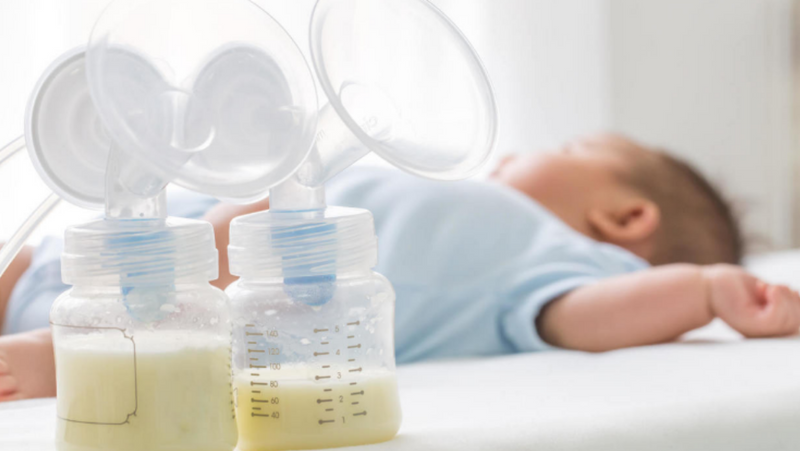Breastfeeding Hasn’t Been Easy for Moms During the Pandemic...
But It’s Getting Better.
Written by: Allison, RN, IBCLC
Breastfeeding is challenging enough on its own. Add a global pandemic to the mix, and that'sthat's a whole other story. Many mothers who have breastfed know that there'sthere's a lot of support needed to be successful with breastfeeding, especially after being discharged from the hospital. Typically, many community resources exist for breastfeeding moms, but because of the Covid-19 pandemic, many of these resources have been limited or completely inaccessible, making it difficult for first-time moms or those having breastfeeding difficulties.
What's Been Going On
Earlier in the pandemic, many clinics and offices that offer breastfeeding help had either closed completely or switched to virtual care. Robin Franzoni, a hospital-based lactation consultant in New Jersey, explained, "After discharge, initially, there was no in-person support. Virtual support was it. Now at least the private consultants and breastfeeding support centers have been open." The Women, Infants, and Children (WIC) program, which provides breastfeeding support to low-income families, also closed many of its offices, making access to a breast pump and lactation help more difficult for already vulnerable populations. And support groups that offer nursing moms the opportunity to meet and discuss their breastfeeding experiences have still been unable to reconvene in person. "My breastfeeding support group, which met weekly for 2 hours, has still not been able to meet in person. The moms met each other and formed relationships. Right now, we are just relying on our chatroom," Franzoni said.
For the most part, doctor's offices still have restrictions on how often partners can come in for prenatal appointments, putting a lot of stress, particularly on first-time parents. While some offices are now allowing partners to come in for ultrasound appointments, others are still not allowing any visitation. "I think that moms have been stressed in so many other ways before getting to the hospital, that they are coming in more anxious than normal," Franzoni said. Additionally, at the start of the pandemic, many hospitals had amended their policies in obstetric units regarding visitation, discharge, and whether babies had to be separated from parents. Some mothers were required to go home 24 hours after a vaginal delivery, making it difficult if they were already having breastfeeding struggles. Since the beginning of the pandemic, government organizations such as the CDC and World Health Organization have advised mothers and newborns to stay together at all times even if a mother is positive for Covid-19. However, many hospitals were slow to apply these recommendations, and mothers and newborns were required to be separated, making breastfeeding even more challenging.
What You Can Do
Moms can benefit by talking through their breastfeeding struggles with a lactation consultant, even if that's over the phone, through text messaging, or on a video call. Many hospitals have a breastfeeding warm line number you can call after going home. A lactation consultant usually manages these lines, and they can walk you through basic problems or questions over the phone. "I see how it helps every time I connect with someone. We can point you in the right direction for help, resources, and support. Just talking or texting someone can make a huge difference," Franzoni said.
Now that many outpatient breastfeeding centers are beginning to open back up, it's becoming easier for moms who may need more hands-on help. Be sure to ask about waiting room policies if you plan on going to an office or clinic. Some moms may be more comfortable waiting in the car until their appointment time, and in many offices servicing young babies and toddlers, this is even a requirement. And if you find a private practice lactation consultant who is back open for home visits, ask about what kind of personal protective equipment (PPE) they will be wearing during your visit. With more access to masks and gloves for healthcare professionals that work outside of hospitals, they should have the proper PPE necessary to keep all of you safe.
Moms, know you're not alone right now in your breastfeeding journey. The best thing you can do is stay informed, know your options, and do what's best for you and your family. Your baby will thank you later!



